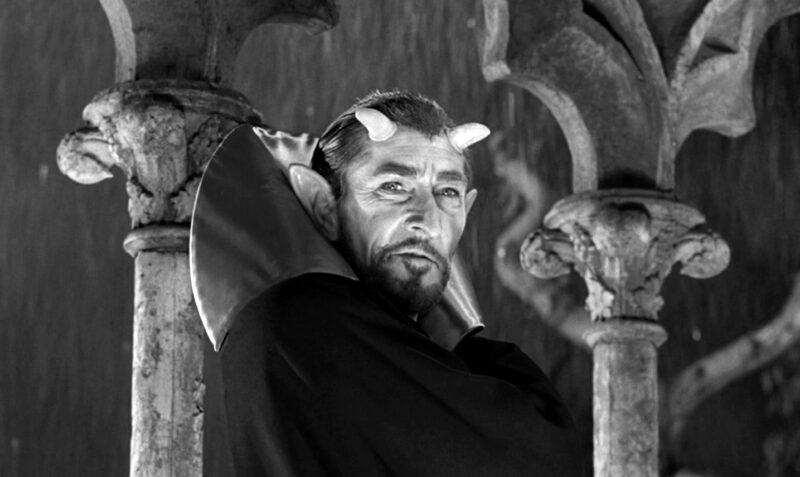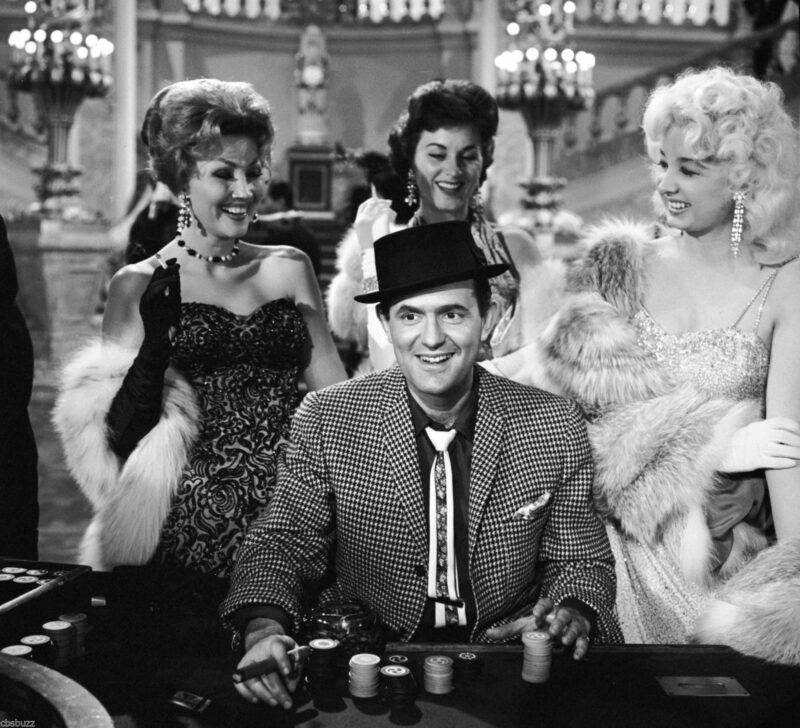Article originally published on Doorway Publishing

I was raised on UHF television, WUAB Channel 43 in Cleveland to be precise. It was a favorite station of my siblings and mine because it didn’t take much maneuvering of the adjustable bunny-eared antenna on top of the Television set to get a clear signal. Channel 43 broadcasted all of the Cleveland Indians’ games, Popeye cartoons, and my favorite of all, Twilight Zone episodes each night at 11:00 p.m. And then every once in a while Channel 43 would host a marathon weekend showings of all the Twilight Zone episodes back to back. I loved it! I would sit for hours just mesmerized by the eerie black and white dramas that were hosted by Rod Serling and his creepy co-writers.
There was nothing else like it on TV and I was drawn to each episode like a Junebug to the bright porch light on a sticky summer night. My sister Gina loved them too, and so did my dad, but the rest of my family thought they were too weird to join me as I binge-watched episode after episode. Some of the stories contained a bit of 1960’s horror camp and crude make-up jobs, but many were acted brilliantly and the plots were downright terrifying. And as a kid, I loved to be scared, even if that meant staying awake all night looking for alien spaceships circling the dark sky and one-eyed monsters sneaking around the backyard of our quiet suburban house out the bedroom window. Though night terrors may have stalked me, I kept watching.
I have often wondered over the years, what was it about these stories that kept me so captivated? I recently watched a documentary that asked the question, “What motivated Rod Serling to write such spine-tingling plot lines?” And the answer was rather surprising, and I also think it explained my fascination. Rod knew that death was coming for us all and he used the Twilight Zone as a platform to explore the different ways it could possibly show up.
One episode had death show up in the handsome face of Robert Redford, helping ease the pain of a sweet old lady who was nearing her end. Another episode showed death in the sallow face of a hitchhiker on the side of the road who kept holding up his thumb saying, “Going my way?” Death even came in the form of Satan locked in a castle on top of a mountain by a strange-looking company of doomsday monks.
The topic of death kept me spellbound. And it still does. It reminds me of the verse in Ecclesiastes 3:11 that says, “He has also set eternity in the human heart; yet no one can fathom what God has done from beginning to end.”
This curiosity about eternity has gripped me my whole life. When I was 12 years old I will never forget the blaring police and fire engine sirens screaming past our house stopping across the street on a quiet March afternoon. As my sister and I ran down to see what was going on, I saw my older brother Donny being questioned by a police officer. When he finally arrived home, he told my family over the dinner table how he found a bloated dead body washed ashore on the sandy beach of Lake Erie. I sat spell-bound as he described how he was throwing sticks in the water to our dog who started sniffing and tugging at something on the shoreline. My brother initially thought it was a large dead carp, but the closer he got the more he noticed the blue lifeless arms and legs of a dead man entangled in pieces of green moss and rotted pieces of driftwood. I sat with my mouth hung open as I took in every morbid detail.
A couple of years later my family went to the funeral of my mom’s uncle. It was an open casket service and I was shocked at seeing how shiny the bald head of her dead uncle was. For some reason, my sister Stephanie and I began singing the Wizard of Oz song, “Merry Old Land of Oz” song, “Rub-Rub here, Rub-Rub there…” because his head was sparkling clean like he was prepared in the beauty parlor in Oz. My mom made us leave the funeral parlor because we wouldn’t stop giggling about it. Here was a dead person, and the strangeness and otherness of death had us snickering and laughing. Why?
Death is a strange thing. It didn’t and still doesn’t make sense to me. How could one minute a person be breathing and thinking and the next all that was left was a stiff corpse that was not the same person at all? It had me curious, always wondering what was on the other side of the dark curtain. And I credit the Twilight Zone for sparking a unique interest in the afterlife, for which I have been curious ever since. One episode, in particular, began me really questioning life called “It’s a Nice Place to Visit.” The story is simple:
A wicked man dies a violent death and he ends up in a place that grants his every wish for the rest of eternity. It seems like he achieves every person’s dream, making it to heaven where all his wishes come true, but it ends up actually being hell. Involved in the story is a heavier older man who acts kind and benevolent toward the wicked man, granting him his wishes on command, but it is the devil himself. He gives him everything — riches, pleasures, nice clothes, a ritzy apartment, drinks, dames, the works — but none of it satisfies. The man eventually goes insane because as one commentator says, “there’s no more challenge in his existence, there’s no more effort needed, and there’s nothing to hope for because it all exists as soon as he wants it.”

After it was over I started considering my own life. “What if I got everything I wanted from life and none of it was enough? And is there anything in life that satisfies in the long run?” I couldn’t stop thinking about this. While most kids and adults did all they could to ignore the afterlife, I grew more and more curious. Was there any truth to the questions Rod Serling was asking? Is there more than this?
There is a book entitled “A Man Called Peter,” which is a biography about the life of the late preacher and chaplain of the U.S. Senate, Dr. Peter Marshall. The book was written by his wife, Catherine Marshall, and she wrote a chapter about how death always fascinated Peter Marshall. One of his interests was being at the bedside of a dying man because there always was a strange aura around those who died. He would often testify that those who knew Jesus seemed to be surrounded by a profound feeling of joy and deep peace. But those who were running from God were often filled with dread and despair hung in the air like a heavy suffocating cloud slowly descending on the dying person.
Reading that reminded me of many a creepy Twilight Zone episodes I watched over the years.
And I think that this fascination has also had a part to play in my decision to enter the ministry. I was driven to read the Bible to find answers to the deepest questions I had concerning eternity. What really was on the other side, and was it safe? Over the last 25 years of being a pastor, I have presided over more than 200 funerals. I have also been near the bedside of many in their final moments of life.
In fact, the first month I was officially the lead pastor at our church I got called to a member’s house who was being cared for by Hospice in their home. My phone rang at two in the morning and I quickly sped over to the house to pray with the family and read scripture. They had me sit next to the man as he was struggling to breathe with a crackling-wet death rattle. I decided to read John 11:25 which says, “I am the resurrection and the life…”, and right as I was in the middle of the verse the man breathed his last. There was a strange hush of silence that enveloped the room like a warm patch of the summer sun, it was as if a small bit of eternity leaked at that moment and the family immediately knew he was going to be just fine.
I have also been to very dark and desperate bedsides where families were moaning and rocking in pain and horror as their loved ones tried to desperately hang on to the thin thread of life. But alas, the human body eventually gives way to the shadow of death. Those moments are usually filled with such a cold calloused edge of reality where all you want to do at that moment is run away. Death still has its sting.
What is it like on the other side? Have you ever sat and wondered about it? Is it friendly or all an illusion? At least Rod Serling wasn’t scared of asking the questions. Are you?



